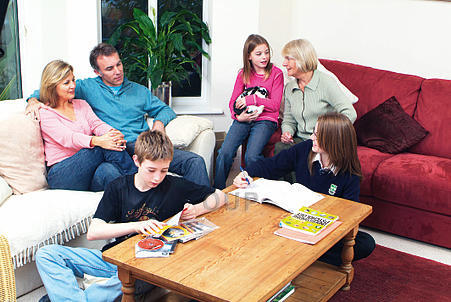 Ahead of her talk at IATEFL Liverpool, Olha Madylus takes a look at best ways to involve parents in the learning of languages.
Ahead of her talk at IATEFL Liverpool, Olha Madylus takes a look at best ways to involve parents in the learning of languages.
Beginning foreign language learning at a young age is generally agreed to be a good idea. Younger children’s brains are more sensitive to linguistic changes pre-adolescence, teachers have more freedom to teach the ‘whole’ child, so learners can learn holistically without getting bogged down and put off by a ‘grammar’ approach. As well as this, children can develop very positive feeling towards English having been introduced to it through meaningful stories, catchy kinesthetic songs and fun activities. And, very importantly, this motivation can underpin many years of further study.
But the reality is younger learners usually study English for a limited time per week, quite often just an hour or two. Their parents take them along to English lessons, believing quite rightly that an early start is a good idea. Alas the children themselves have no extrinsic motivation to learn English and this lack of the kind of motivation which spurs older students to continue their studies outside the classroom autonomously – in addition to the fact that, although they can pick things up very quickly, they also tend to forget quickly, too – can lead to little perceived progress in learning English.
Parents getting involved in their children’s learning of English can help to fill these gaps.
Let’s just consider the advantage of parents reading English story books with their children at home. (Even parents who themselves have little or no English can use audio CDs to support such reading. They can even take advantage of learning with their children). By reading together even for 30 minutes a week, the learners’ contact with English is increased and crucially children’s perceptions of the value of English is heightened – if mummy and daddy want to read these English stories too, it’s not just something for the classroom, but it has relevance in my wider life, too!
Bringing parents into the equation has other benefits. Getting involved and understanding what, and how, their children are learning in English, makes it not only a shared, and therefore very special, experience but also encourages parents to take a greater interest in what their children are doing in their English lessons and support that learning-teaching dynamic.
Renee Sawazaki, writing in IATEFL CATS Spring newsletter describes a Japanese scheme where parents got involved in reading with English their children and the marvellous successes it had.
My presentation at IATEFL Liverpool will look at very practical approaches to encouraging parental involvement and how a website like Oxford Parents can give invaluable aid in this process.
Olha Madylus will be talking about Involving Parents in the Learning Process at IATEFL Liverpool on Wednesday 10th April in Hall 1A at 5:10pm


Wow! Funny, but that was a little life-changing moment as I look at parents and reading in Brazil. “…parents reading English story books with their children at home. (Even parents who themselves have little or no English can use audio CDs to support such reading.)” Yes, obviously! And I hadn’t thought of that. Thanks for opening my eyes!
[…] Ahead of her talk at IATEFL Liverpool, Olha Madylus takes a look at best ways to involve parents in the learning of languages. Beginning foreign language learning at a young age is generally agreed… […]
Reblogged this on English Post.